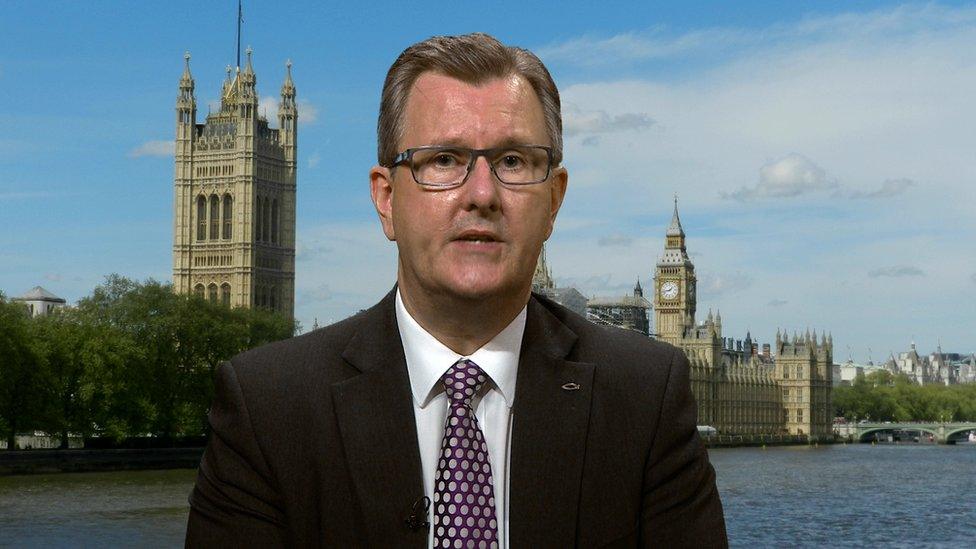Northern Ireland Bill has become about more than the Stormont Assembly
- Published
- comments
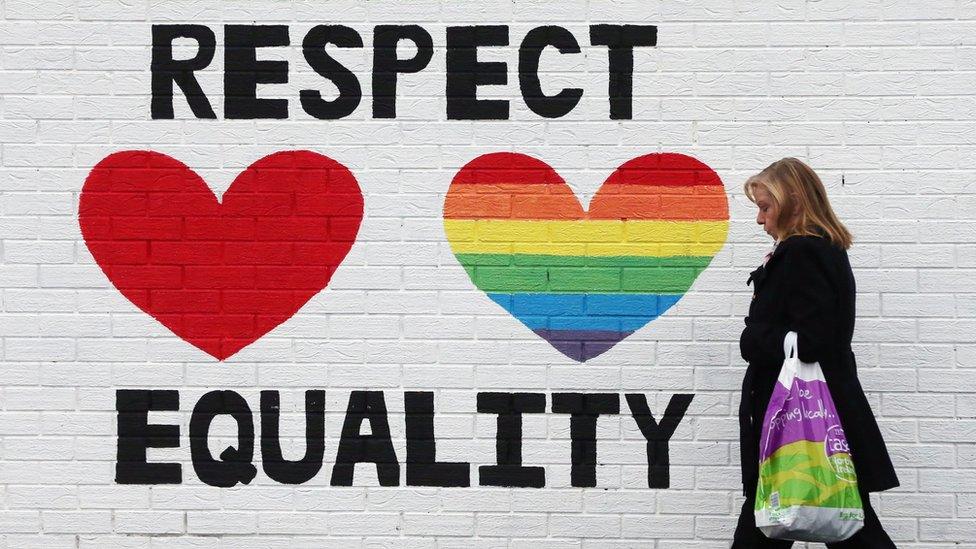
Members of the Northern Ireland Assembly have previously voted five times on whether or not to introduce same-sex marriage
This is the third time in less than a fortnight that I have written about a single piece of legislation.
The Northern Ireland Bill has provided more than its fair share of shock votes and parliamentary drama.
Remember, its basic purpose was to delay a fresh assembly election at Stormont and keep public services ticking over in the absence of devolution.
But it's come to mean so much more than that.
There are now several potentially massive changes to Northern Ireland laws waiting in the wings.
The bill is due to officially become law later this week, after it is approved for the final time in both houses of Parliament.
Same-sex marriage and abortion - issues that have long divided the Stormont parties - now look certain to change, unless a power-sharing government returns by 21 October.
Few think that is on the cards.
Allow X content?
This article contains content provided by X. We ask for your permission before anything is loaded, as they may be using cookies and other technologies. You may want to read X’s cookie policy, external and privacy policy, external before accepting. To view this content choose ‘accept and continue’.
While the British and Irish governments continue to use the term "constructive" to describe the negotiations, the general feeling is that there will be no return to devolution by that now-fixed October deadline.
On Sunday, the DUP leader Arlene Foster said there were "serious negotiations" taking place, but the gap between her party and Sinn Féin remains as it was.
Pro-choice and same-sex marriage campaigners have already begun to celebrate, sensing they are on the cusp of change with the passing of these laws through Westminster.
Then all they have to do is wait a few months.
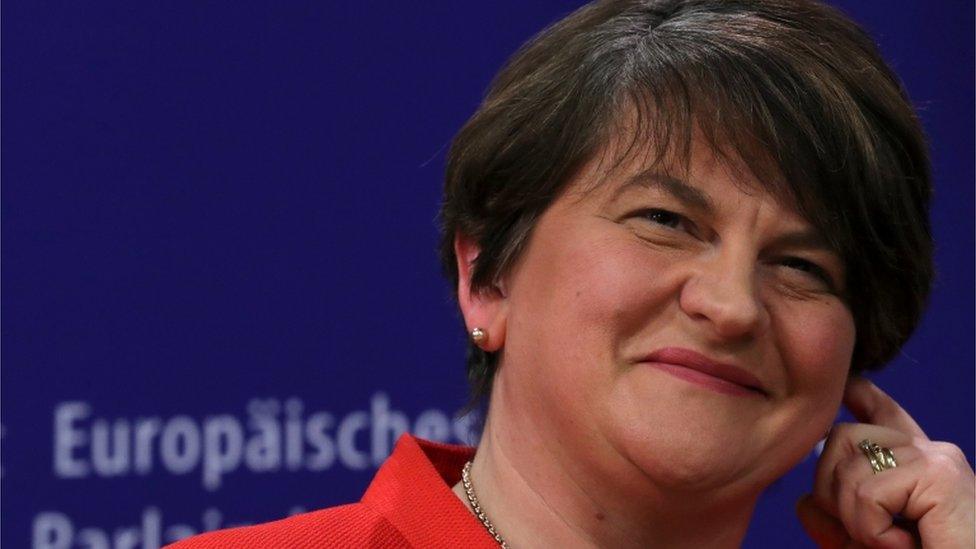
Arlene Foster was speaking on the BBC's Sunday Politics show
Those opposed to MPs taking what should be decisions for Northern Ireland politicians say they are outraged that the bill has been stuffed with other issues.
The government has also committed to providing a pension for victims of the Troubles who were not injured by their own hand.
The move has received a mixed welcome in Northern Ireland because it overlooks the more wide-ranging legal definition of a victim, which also covers ex-paramilitaries hurt while carrying out attacks.
Last Wednesday, the Brexit saga was altered through the legislation as well.
A last-minute amendment from anti-Brexit MPs made it harder for the next PM to suspend parliament and force through a no-deal Brexit.
There had not been so much interest in a piece of legislation since the vote on the actual withdrawal agreement.
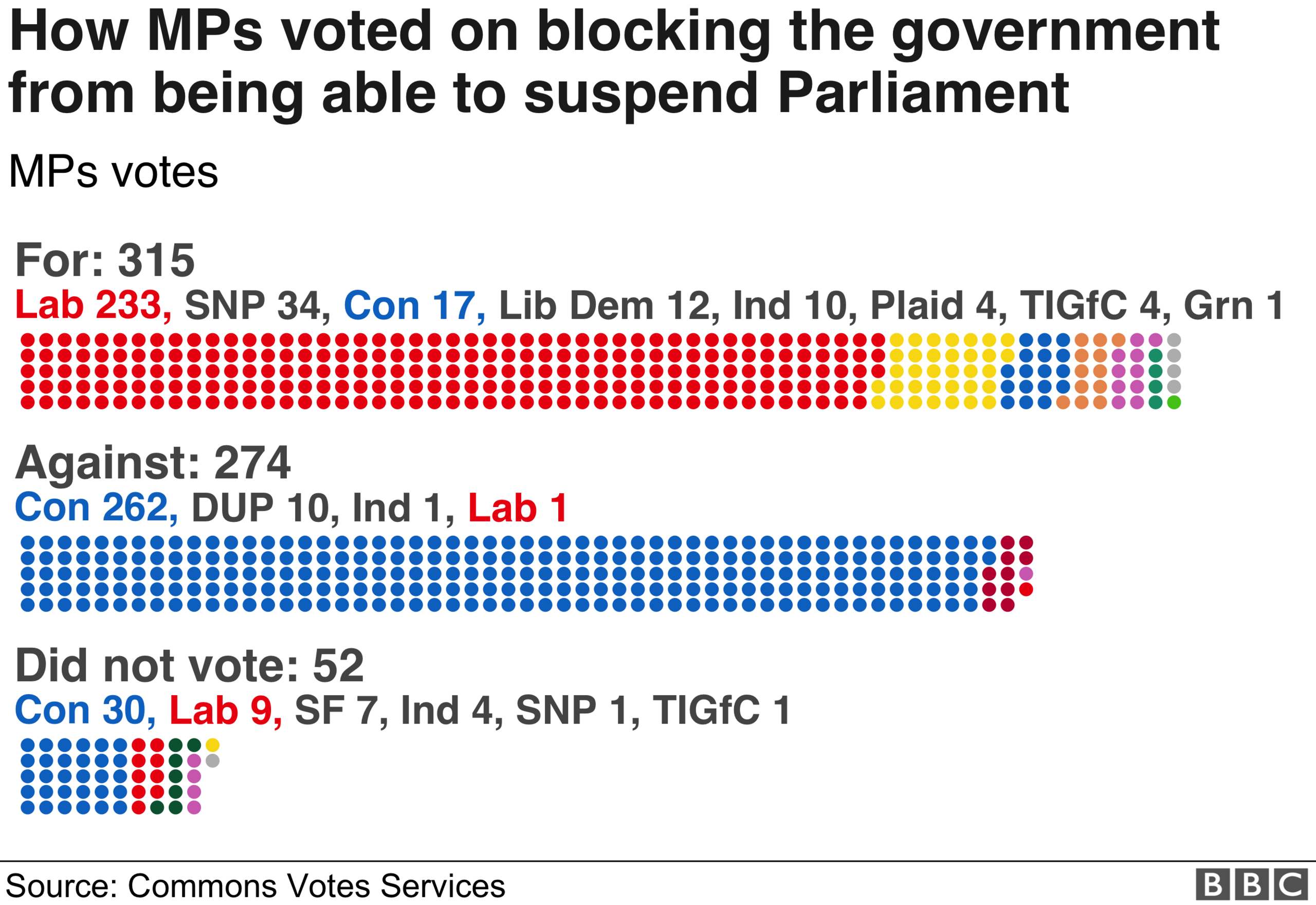
Some Conservative MPs, sensing it could be the last-chance saloon to take some control, opted to defy the party's three line whip and backed the move.
The government suffered another defeat - 315 to 274 - with several high-profile cabinet ministers abstaining.
Symbolism
It marks the final few dying days of the Theresa May premiership, while also becoming the first blockage for the new PM before they have even taken office.
And what made it more remarkable was that it all came through a bill that has come to symbolise much more than was originally intended.
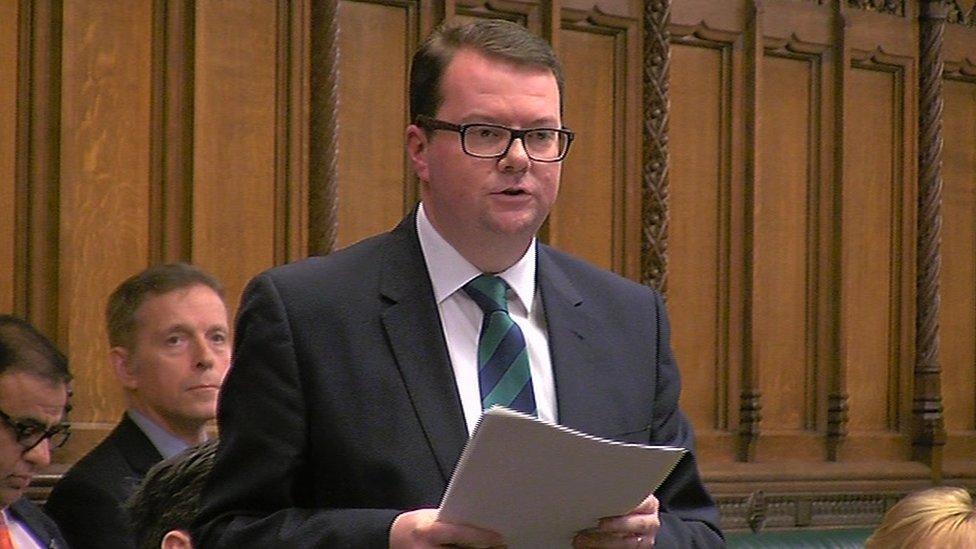
Labour MP Conor McGinn tabled an amendment that sought to legalise same-sex marriage in NI if devolution is not restored
Given the focus around Northern Ireland in the Brexit debate, it is fitting that the effect of the vote means even if parliament is suspended by the next prime minister, MPs must be recalled to debate progress reports updating them on efforts to restore government in Northern Ireland.
Brexit talk will ramp up significantly again in the coming weeks, and speculation of a no-deal outcome has risen because the frontrunner for PM, Boris Johnson, has committed to leaving the EU by 31 October, "do or die".
The Halloween Brexit deadline will likely be making bigger headlines, but the date of 21 October - and the changes and consequences that could flow from it - will mean more for many people in Northern Ireland.
- Published10 July 2019

- Published8 July 2019
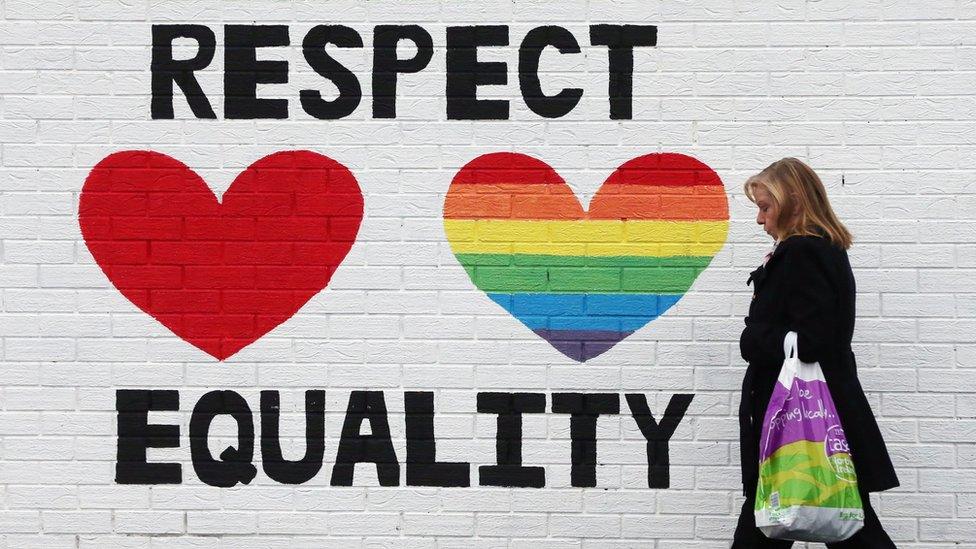
- Published18 July 2019
